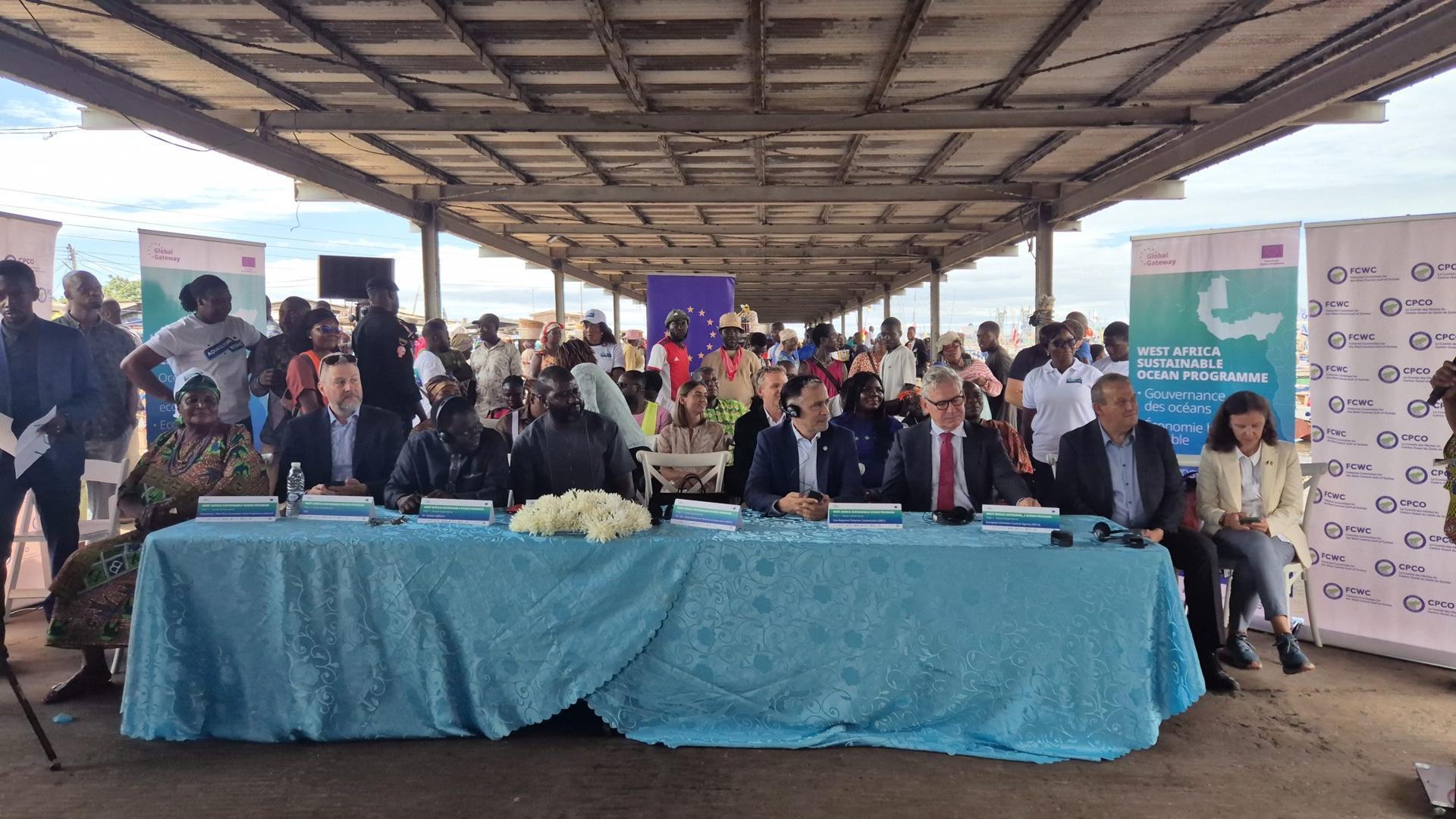Africa-Press – Ghana. The Fisheries Committee for the West Central Gulf of Guinea (FCWC), in collaboration with its national and international partners, has launched the West Africa Sustainable Ocean Programme (WASOP)-Pillar.
The launch held at the Tema Canoe Beach marked the formal inauguration of the programme’s pillar one, aimed at strengthening sustainable ocean governance and regional cooperation in fisheries management across the FCWC region.
Madam Emelia Arthur, the Minister for Fisheries and Aquaculture, in an opening remark, said the programme, which is dedicated to ocean governance, marks a defining moment in the collective journey to secure the health of the oceans, strengthen the resilience of the region’s fisheries, and safeguard the prosperity of coastal communities.
Madam Arthur noted that the launch was of immense importance, not only to Ghana but to the entire West Central Gulf of Guinea region, which stands both as a hub of opportunity and a hotspot of pressing challenges, among which illegal, unreported, and unregulated (IUU) fishing remains a major threat, depriving nations of billions in revenue and endangering the livelihoods of artisanal fishers.
“Shared fish stocks such as small pelagics, which feed millions across our region, can only be sustained through collective, science-based governance. Strengthening ocean governance is therefore essential for ensuring food security, jobs, stability, and long-term prosperity for our people.”
The minister said WASOP is anchored on three interlinked pillars: strengthening ocean governance, supporting a sustainable blue economy, and protecting and restoring marine and coastal ecosystems, which together form a holistic framework to promote the sustainable use and management of the marine and coastal resources, while fostering inclusive economic growth across West Africa.
The programme, she noted, spans 13 coastal countries: Benin, Cabo Verde, Côte d’Ivoire, The Gambia, Ghana, Guinea, Guinea-Bissau, Liberia, Mauritania, Nigeria, Senegal, Sierra Leone, and Togo, underscoring the shared responsibility and unity of purpose in protecting the ocean.
Madam Arthur further indicated that pillar one of WASOP forms the foundation of this programme and focuses on four key priorities, which are reducing IUU fishing, promoting science-based management of shared small pelagic stocks, strengthening regional fisheries governance and cooperation, and empowering artisanal fisheries, which are vital for biodiversity conservation, food and nutrition security, and for sustaining livelihoods across our coastal communities.
“Implementation of Pillar 1 will be led by the European Fisheries Control Agency (EFCA), FAO, the Sub-Regional Fisheries Commission (SRFC/CSRP), and the Fisheries Committee for the West Central Gulf of Guinea (FCWC), in close collaboration with ECOWAS and under the coordination of Expertise France. Their combined technical expertise and regional legitimacy will be key to the programme’s success.”
She expressed gratitude to the European Union for funding the initiative and for selecting Ghana as one of the beneficiary countries under WASOP, indicating that the EU’s commitment to sustainable oceans and fisheries management has been instrumental in bringing this vision to life, and Ghana looks forward to a fruitful partnership that transforms ideas into impactful action.
Mr. Rune Skinnebach, the European Union Ambassador to Ghana, said water serves as the lifeline of the climate and a highway for global connection, while the ocean provides invaluable resources and affects every aspect of human lives, yet they are under continuous threat.
Mr. Skinnebach reiterated that IUU is one of the most pressing challenges in the ocean space, threatening marine biodiversity, coastal communities and broader food security, stressing that these challenges could not be tackled alone; therefore, through initiatives like WASOP, they aim to fortify their collaborative efforts across the region.
“WASOP strengthens our shared commitment with Ghana to protect and grow the marine economy and to combat IUU fishing. Through comprehensive Monitoring, Control, and Surveillance (MCS), we aim to curb the menace of IUU fishing and ensure sustainable ocean governance,” he said.
He emphasised that the EU was not here to impose solutions, as the success of WASOP depends entirely on the wisdom of West African governments and their fisheries control agencies, the innovation of the private sector, the dedication of the scientific community, and the energy of the youth, adding that “This is an African-led vision, and we are proud and humble in that journey.
Mr. Gaston Djihnto, Secretary General of the FCWC, and Prof. Berchie Asiedu, the Executive Director of the Fisheries Commission, reiterated the importance of sustaining fisheries within the region and called on stakeholders to collaborate to promote and preserve the sector.
For More News And Analysis About Ghana Follow Africa-Press







